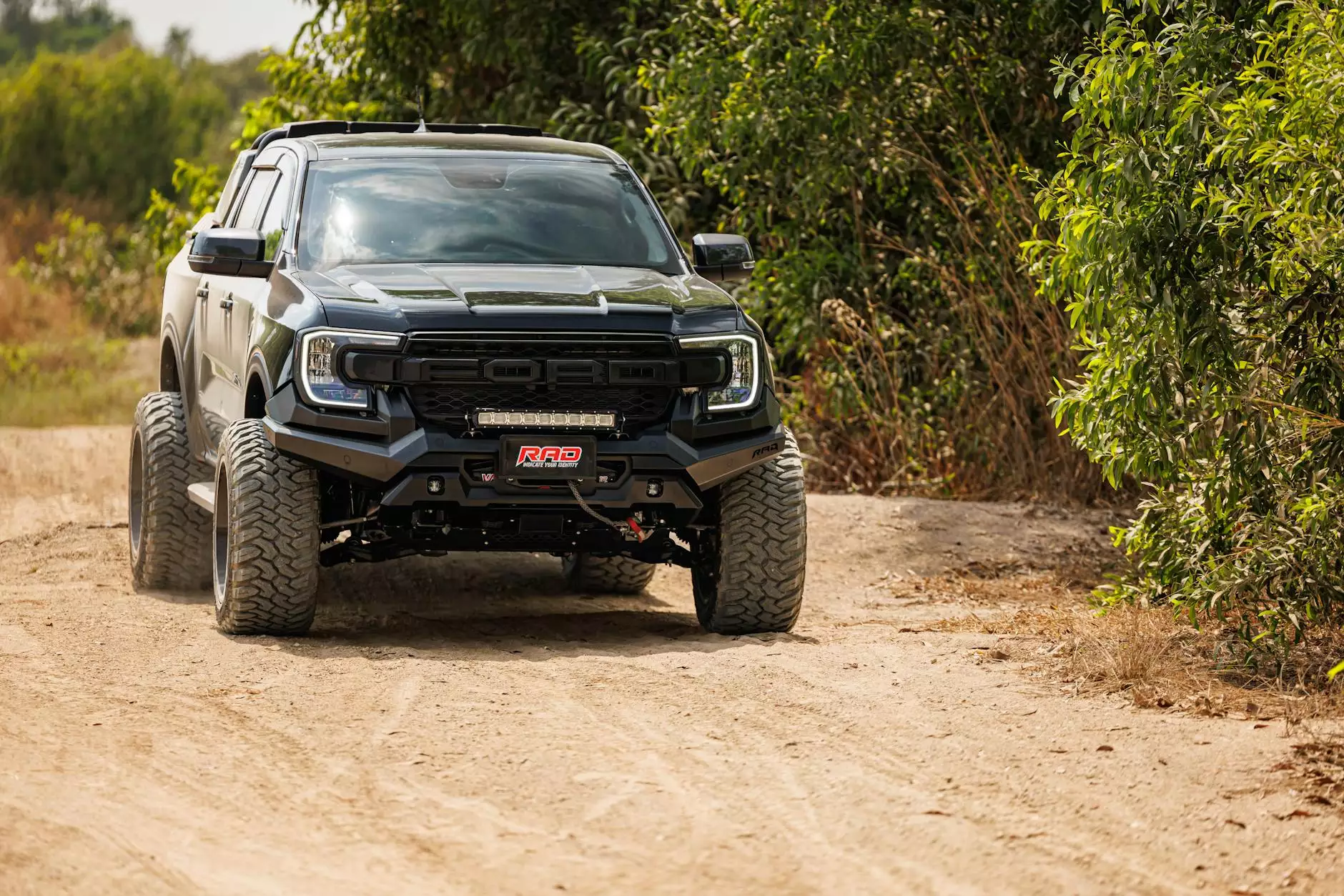The Ultimate Guide to JEEP SUSPENSION: Enhance Your Off-Road Experience

When it comes to off-road vehicles, one of the most crucial components is the JEEP SUSPENSION. A robust suspension system not only ensures a smoother ride over rough terrains but also significantly enhances the vehicle's overall performance and capability. In this article, we will dive deep into the intricacies of JEEP suspension systems, their benefits, types, maintenance tips, and how you can choose the right suspension for your adventurous needs.
Understanding JEEP SUSPENSION
The suspension system of your JEEP is designed to absorb shocks from rough terrain, maintain tire contact with the ground, and provide stability while driving. A well-functioning suspension system is essential for both on-road comfort and off-road capability.
How JEEP SUSPENSION Works
At its core, the JEEP SUSPENSION consists of various components, including:
- Shocks and Struts: These components absorb impact and minimize bounce.
- Springs: Springs support the vehicle's weight and absorb shocks during off-road activities.
- Control Arms: These help to manage the vertical movement of the wheels while keeping them aligned.
- Leaf Springs: Often found in JEEPs, they provide durability and flexibility for off-road conditions.
The Importance of a Quality Suspension System
A high-quality suspension system is vital for several reasons:
- Improved Handling: A sophisticated suspension system provides better control and handling capabilities, contributing to superior performance on both smooth and rugged terrains.
- Enhanced Comfort: With the right setup, you can enjoy a smoother ride, reducing fatigue during long journeys.
- Prolonged Vehicle Life: Superior suspension systems help in minimizing wear and tear on other vehicle components, extending the life of your JEEP.
- Increased Off-Road Capability: JEEP SUSPENSION upgrades can significantly improve your off-road capabilities, allowing you to tackle more challenging trails with confidence.
Types of JEEP SUSPENSION Systems
There are several types of suspension systems available for JEEP vehicles, each catering to different needs and preferences:
1. Stock Suspension
The stock suspension is the factory-installed system. It offers adequate performance for everyday driving and mild off-road use. However, enthusiasts often find it lacking in significant off-road capabilities.
2. Lift Kits
Lifting your JEEP can significantly enhance its off-road performance. Lift kits come in various heights, typically ranging from 2 to 6 inches. They increase ground clearance, allowing for larger tires and better obstacle navigation.
3. Leveling Kits
Leveling kits are designed to raise the front of the JEEP to match the height of the rear. This adjustment helps improve handling and provides a more aggressive stance without the need for a full lift.
4. Upgraded Aftermarket Suspensions
Aftermarket systems are often adjustable and can be customized to suit individual driving styles and terrain preferences. These systems provide the best performance for serious off-road enthusiasts.
Benefits of Upgrading Your JEEP SUSPENSION
Upgrading your suspension system can lead to numerous benefits:
- Better Off-Road Performance: Enhanced articulation and ground clearance allow for improved obstacle navigation.
- Customizability: Tailor your suspension setup to fit your specific off-roading style and vehicle needs.
- Tire Clearance: Larger tires can be fitted, which enhances traction and stability.
- Durability: Aftermarket systems are often built with tougher materials to withstand rigorous off-road conditions.
Choosing the Right JEEP SUSPENSION
Selecting the right suspension system involves several factors:
1. Budget
Suspension systems can vary widely in price. It’s essential to set a budget before exploring options to ensure your choice is financially viable.
2. Driving Style
Consider how you plan to use your JEEP. If you predominantly drive off-road, a high-performance aftermarket suspension will be ideal. For mostly on-road driving with occasional off-road adventures, a mild lift kit may be sufficient.
3. Terrain
Understand the terrains you will encounter. For challenging landscapes with rocks and steep inclines, investing in an advanced suspension system is critical.
4. Vehicle Compatibility
Ensure that the chosen suspension system is compatible with your specific JEEP model and year.
Installation Tips for JEEP SUSPENSION Systems
Installing a suspension system can be a complex task. Here are some tips to ensure a successful installation:
- Read the Instruction Manual: Always start by carefully reading the instruction manual provided with the kit.
- Gather the Right Tools: Make sure you have all the necessary tools before starting the installation.
- Take Your Time: Rushing can lead to mistakes. Ensure each component is installed correctly.
- Seek Professional Help: If unsure, consider hiring a professional mechanic or suspension specialist for installation.
Maintenance of Your JEEP SUSPENSION
Proper maintenance of your suspension system not only ensures its longevity but also guarantees optimal performance:
1. Regular Inspections
Routine checks can identify wear and tear before they lead to significant issues. Look for signs like leaking shocks, uneven tire wear, or unusual noises when driving.
2. Cleaning
Keep suspension components clean from dirt and debris, especially after off-roading, to prevent corrosion and damage.
3. Replace Worn Components
Don't ignore signs of wear. Replace any damaged or worn suspension parts promptly to maintain optimal performance.
Conclusion
A well-designed JEEP SUSPENSION system is integral to enjoying your off-road adventures safely and comfortably. By understanding the various options, benefits, and maintenance practices, you can make informed decisions that will enhance both your vehicle's performance and your driving experience.
For further details and a wide range of JEEP suspension products, visit offroad-zone.com. Equip your JEEP with the perfect suspension tailored for your adventure needs.





